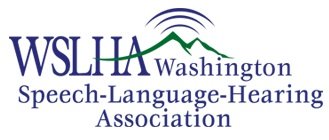Legislative Advocacy
WSLHA encourages its members to be active and voice their opinions through legislative efforts on behalf of the profession. ASHA provides an excellent resource for current issues and ways to get involved. ASHA now provides a site to engage ASHA members in state advocacy issues at: www.asha.org/advocacy/takeaction.
Related Documents
Lobbyist Reports
2025
01-13-2025 / 01-22-2025 / 01-28-2025 / 02-02-2025 / 02-08-2025 / 02-15-2025 / 02-22-2025 / 03-01-2025 / 03-08-2025 /
03-15-2025 / 03-22-2025 / 03-29-2025 / 04-05-25 / 4-12-2025 / 4-19-2025 / 4-26-2025
Resources
Research Your WA State Legislators & Learn Which Committees They Are On
Washington State Office of the Insurance Commissioner Complaint Form
Interstate Practice Resource: ASHA has developed a resource to answer member questions regarding practicing across state lines and internationally via telepractice. The resource addresses questions about students residing temporarily in states where members are not licensed, providing services to students when members are temporarily residing in a state where they are not licensed, and providing services to students internationally via telepractice. Visit ASHA’s Website for more information
DOH Telehealth Training- a link regarding What to do to Provide Telehealth - Posted by WSLHA on 1/6/2021






